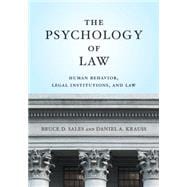
Note: Supplemental materials are not guaranteed with Rental or Used book purchases.
Purchase Benefits
What is included with this book?
Daniel A. Krauss, JD, PhD, completed a joint degree program in psychology and law at the University of Arizona, receiving his JD and then his PhD in clinical psychology and psychology, policy, and law. He is a full professor and chair of the Department of Psychology at Claremont McKenna College.
Dr. Krauss has published a large number of research articles and book chapters relating to clinical psychological evaluations for the courts, legal and psychological expertise, evidentiary admissibility standards, and juries' ability to process complex expert testimony in their decision making. He is the coauthor of the textbook Forensic and Legal Psychology. He has also coedited three books (Jury Psychology: Volume 1. Social Aspects of the Trial Process; Jury Psychology: Volume 2. Psychological Expertise in Court; and Expert Testimony for the Courts) and is the coeditor of the book series Law and Public Policy: Psychology and the Social Sciences published by APA.
References
Index
About the Authors
The New copy of this book will include any supplemental materials advertised. Please check the title of the book to determine if it should include any access cards, study guides, lab manuals, CDs, etc.
The Used, Rental and eBook copies of this book are not guaranteed to include any supplemental materials. Typically, only the book itself is included. This is true even if the title states it includes any access cards, study guides, lab manuals, CDs, etc.